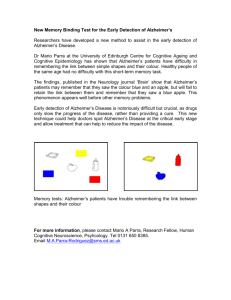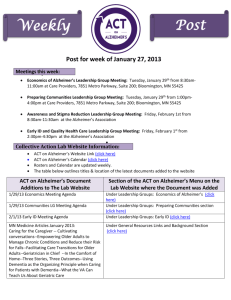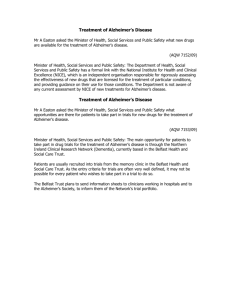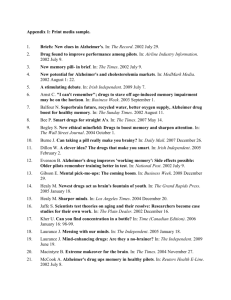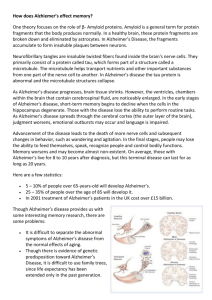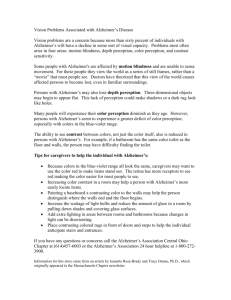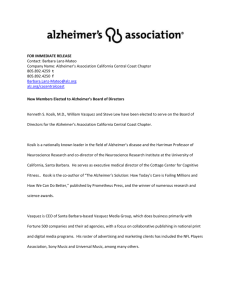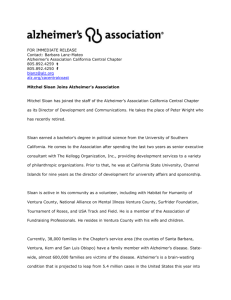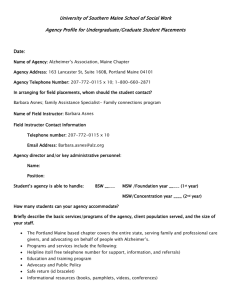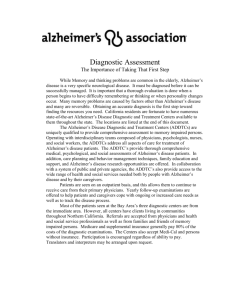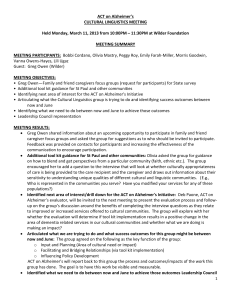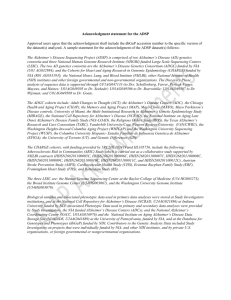10 tips to avoid Alzheimer Disease
advertisement
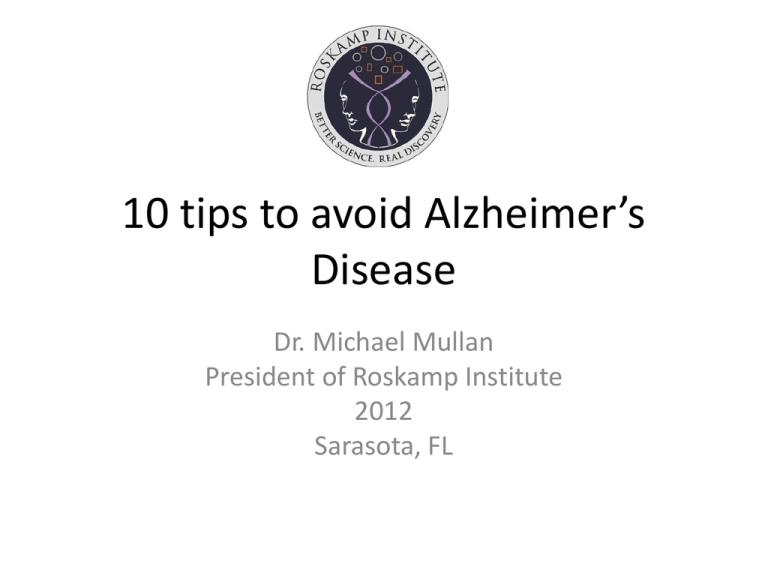
10 tips to avoid Alzheimer’s Disease Dr. Michael Mullan President of Roskamp Institute 2012 Sarasota, FL Our risk for Alzheimer’s Disease • Demographically the world population is aging - particularly quickly in advanced societies • Risk for the disease is impacted by genetics but also by many lifestyle choices • Despite genetic predisposition risk for the disease can be altered by modifying lifestyle 1. Stay physically active • Direct relationship between physical activity and protection against Alzheimer’s disease • Open questions: – How much activity is required? – How long ? – What type of activity? 2. Eat well • Diets which resemble the “Mediterranean Diet” lower the risk for Alzheimer’s disease • Mediterranean diet consists of : – high amounts of vegetables, fruits, legumes and cereals – low intake of saturated fats and relatively high intake of olive oil – moderate fish intake – low to moderate intake of dairy products – low consumption of meat – low to moderate consumption of wine • This diet is also associated with other health benefits such as cardiovascular health 3. Mental Exercise - Use it or Lose it • Educational status protects against onset of Alzheimer’s disease – Cognitive stimulation in mouse models of Alzheimer’s reduces Alzheimer pathology • How much should we do? What should we do? – Games vs. hard learning – Integration of different brain areas and different skills 4. Manage medical risk factors aggressively • Common disorders increase our risk for Alzheimer’s disease – Diabetes, heart disease, hypertension • This risk is independent of risk for cerebrovascular dementia • What can we do? – Tight monitoring of blood sugar levels in diabetics, blood pressure in hypertensives, arrhythmia in those with rhythm abnormalities and maintain a healthy weight 5. Sleep well • Sleep deprivation is associated with errors of judgment, inattention and memory problems • Brain organizes information overnight and consolidates memories – Poor sleep patterns stop consolidation and increase inattention 6. Drink well • J-shaped relationship between alcohol risk for dementia • Abstainers at higher risk than drinkers • Excess drinking increases risk • Modest consumption is protective • Red wine better than other alcohol ? Polyphenols 7. Supplements and Vitamins • Vitamin B12 and Folate deficiency is associated with memory loss and risk for Alzheimer’s disease • Other vitamins not shown to reduce risk when supplemented • Take away message – Don’t be deficient by excess vitamins > not preventative • Omega-3 fatty acid supplementation – Still being tested > ratio of Omega-3 to omega-6 fatty acids importance – Most diets deficient in Omega-3 • Other supplements seem protective (Curcumin) • But others don’t (Ginkgo Biloba) 8. Don’t smoke • Data is contradictory, but overall smoking increases the risk for Alzheimer’s disease and other dementias • Nicotine itself might be helpful when not taken by cigarette • Cerebrovascular disease caused by smoking interacts extremely negative with Alzheimer pathology 9. Don’t hit your head • Traumatic brain injury increases risk for Alzheimer’s disease • Multiple repeat injuries worse than single large blows in general • Wear protective head gear • Increase balance and strength in the elderly Head injuries due to falls major cause of increased risk 10. Putting it all together • Not one activity but many • Small changes in several aspects of lifestyle probably better than huge changes in one area • Sustainable lifestyle better than short-lived enthusiasm • Enjoy the new regimen! Contact: mmullan@roskampinstitute.net
